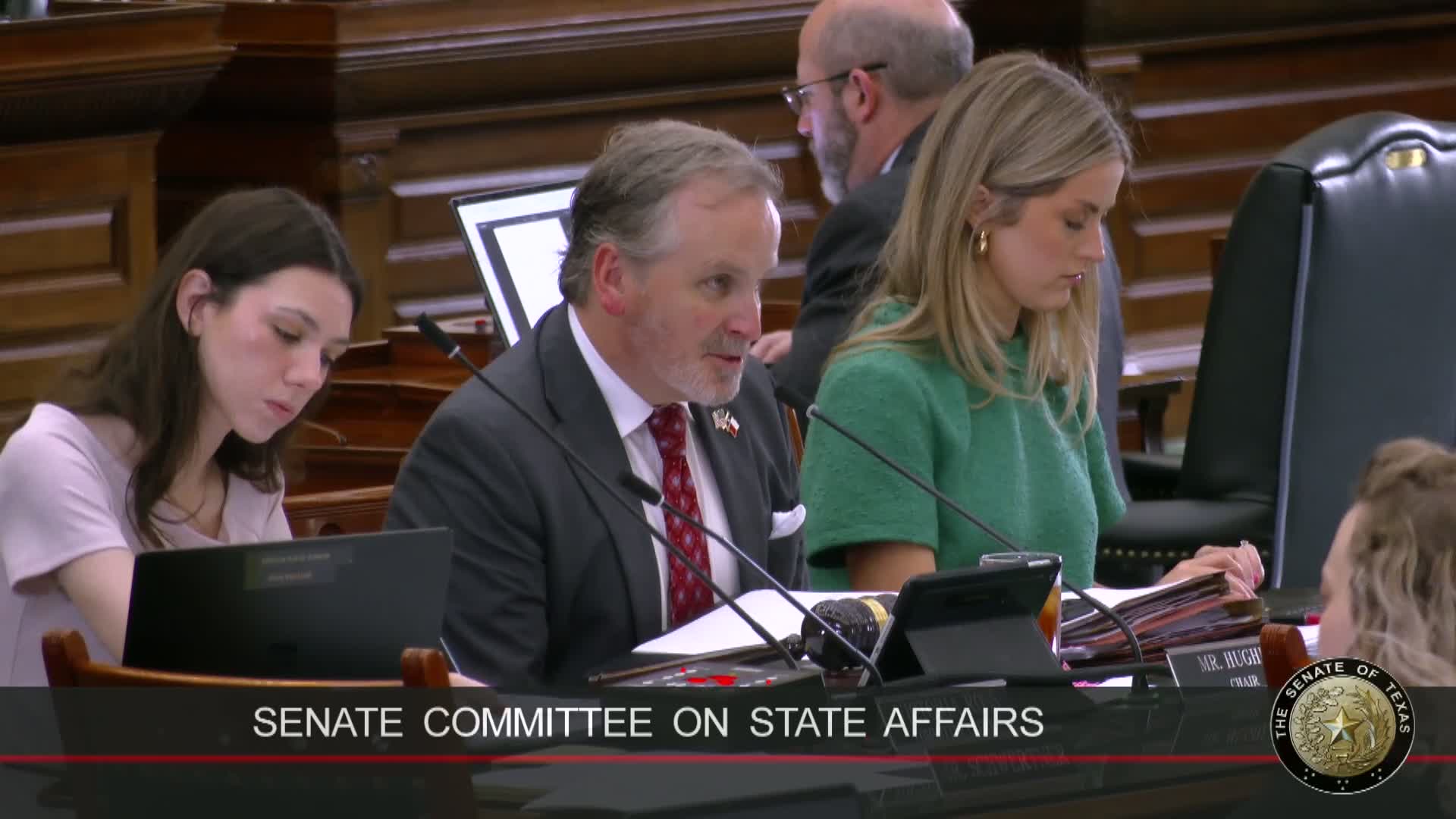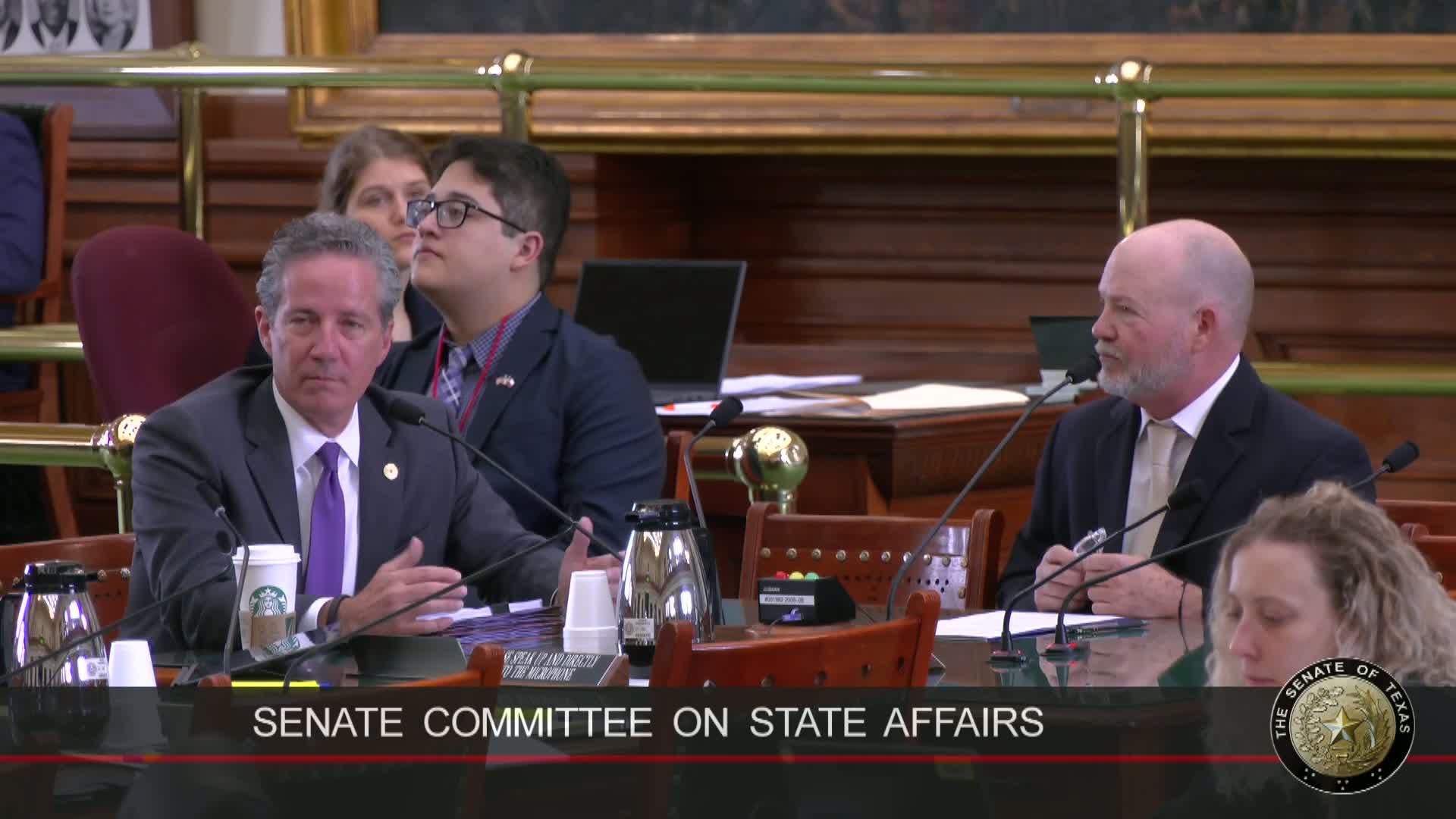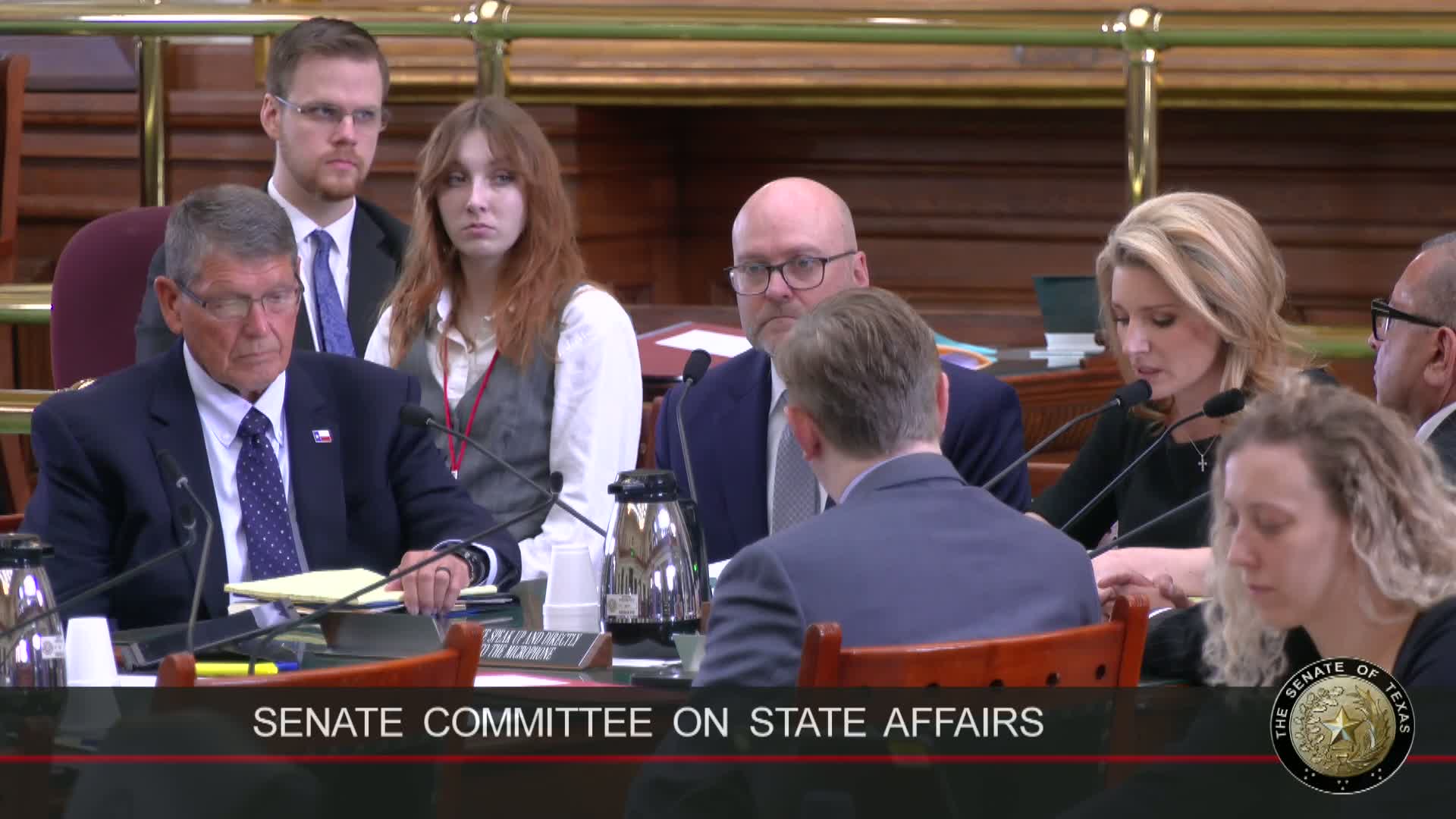Article not found
This article is no longer available. But don't worry—we've gathered other articles that discuss the same topic.

Bill would let local workforce boards top‑up reimbursements for high‑quality child care in low‑income areas, supporters say

Committee weighs limits on mental‑anguish claims against funeral providers; industry says lawsuits threaten small operators

Senate committee debates new ‘farm winery’ permit aimed at boosting use of Texas‑grown grapes

Senate committee hears bill to let victims sue creators of fake crowdfunding campaigns

